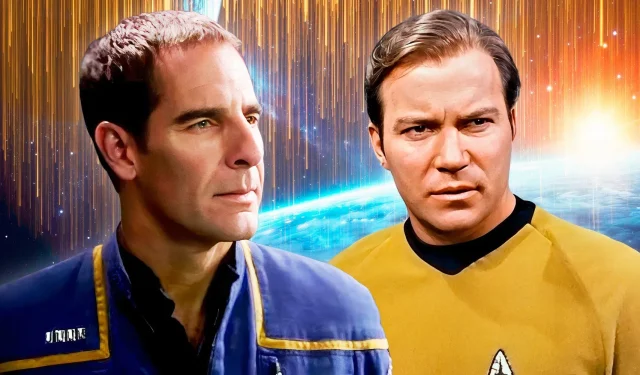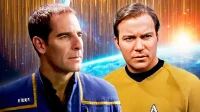One of the most poignant aspects of the Star Trek franchise is the conclusion of each series. The latest installment, Star Trek: Lower Decks, reached its finale on December 19, 2024, featuring the USS Cerritos unveiling a stable multiverse portal. Previous series, such as Star Trek: Deep Space Nine, concluded by resolving the intricate plotlines of the Dominion War while simultaneously setting a hopeful stage for its core characters’ futures. Similarly, the finale of Star Trek: The Next Generation, titled “All Good Things…”, is celebrated for masterfully wrapping up a beloved series.
In contrast, Star Trek: Enterprise faced a different fate. Originally envisioned as a seven-season epic akin to DS9, TNG, and Star Trek: Voyager, it was abruptly canceled by UPN after just four seasons due to dwindling viewership. A similar fate befell Star Trek: The Original Series, which was cut short after its third season. The culmination of both Enterprise and The Original Series is remembered as some of the weakest finales in Star Trek’s extensive history.
The Disappointing Finale of Star Trek: The Original Series
Acting Greatness Contrasted by Thematic Disparity
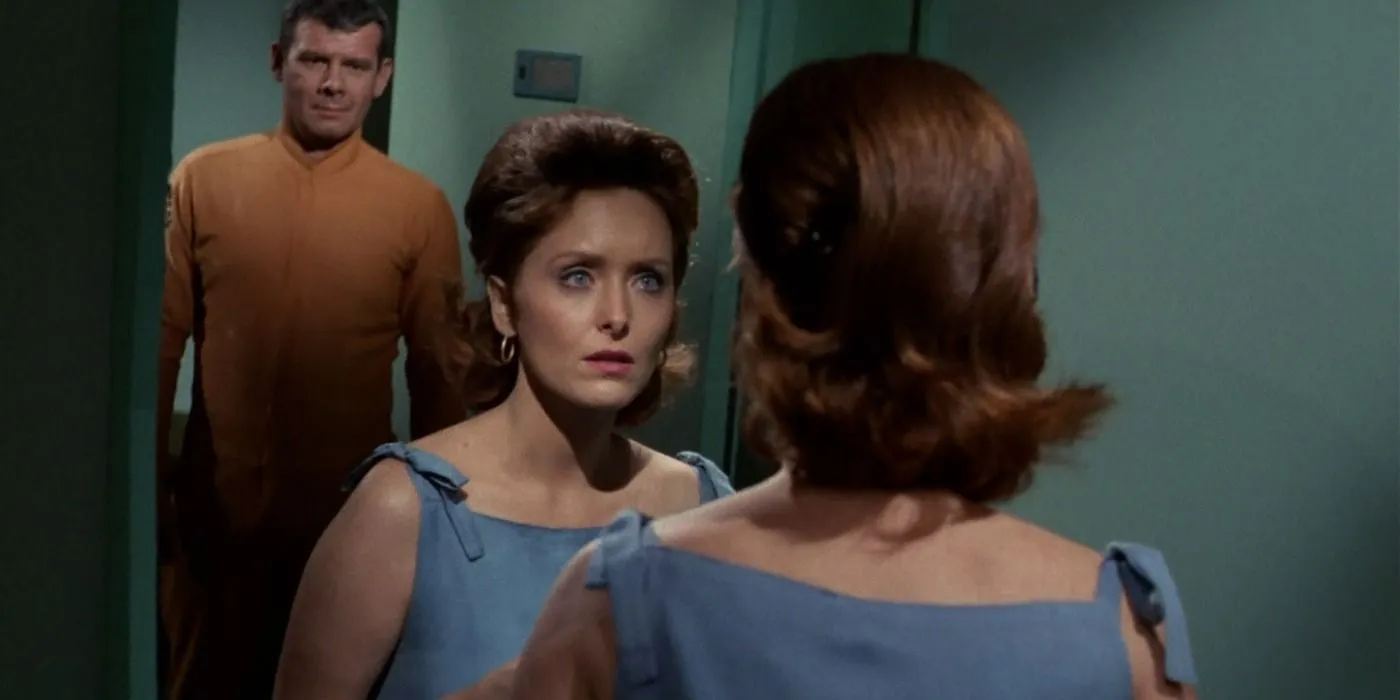
Upon its conclusion with “Turnabout Intruder,”Star Trek: The Original Series did not deliver a finale that resonated as a fitting send-off. At the time of airing, series finales were not a common practice, so the episode itself may not have appeared out of the ordinary to its original audience. However, over the course of 60 years of Star Trek’s legacy, this episode stands out as an unsatisfactory ending for a cherished series. Notably, key characters like Nichelle Nichols’ Lieutenant Nyota Uhura were absent, and the episode’s narrative arc fails to cohesively relate to the larger storyline of TOS.
In essence, “Turnabout Intruder”feels more like an isolated episode rather than a powerful conclusion. While it showcases commendable performances by William Shatner—who adeptly plays both Captain James T. Kirk and Dr. Janice Lester—and Sandra Smith in her dual roles, the strengths of these performances do little to elevate the episode to memorable status. Instead, the narrative appears disconnected from TOS’s utopian vision, leaving much to be desired.
Unfortunately, “Turnabout Intruder”is marred by significant flaws. The convoluted effort required to persuade beloved characters such as Dr. Leonard “Bones”McCoy (DeForest Kelley) and Lt. Montgomery “Scotty”Scott (James Doohan) about the body swap is baffling. Furthermore, lines from Dr. Lester, such as “Your world of Starship captains doesn’t admit women,” starkly contrast with the forward-thinking ideals of female leadership prevalent in Star Trek’s narrative fabric. This dissonance becomes all the more glaring when considering that this episode serves as the series finale.
The Unfavorable Reception of Star Trek: Enterprise’s Finale
Theoretical Ambitions of “These Are The Voyages…”Fail to Deliver
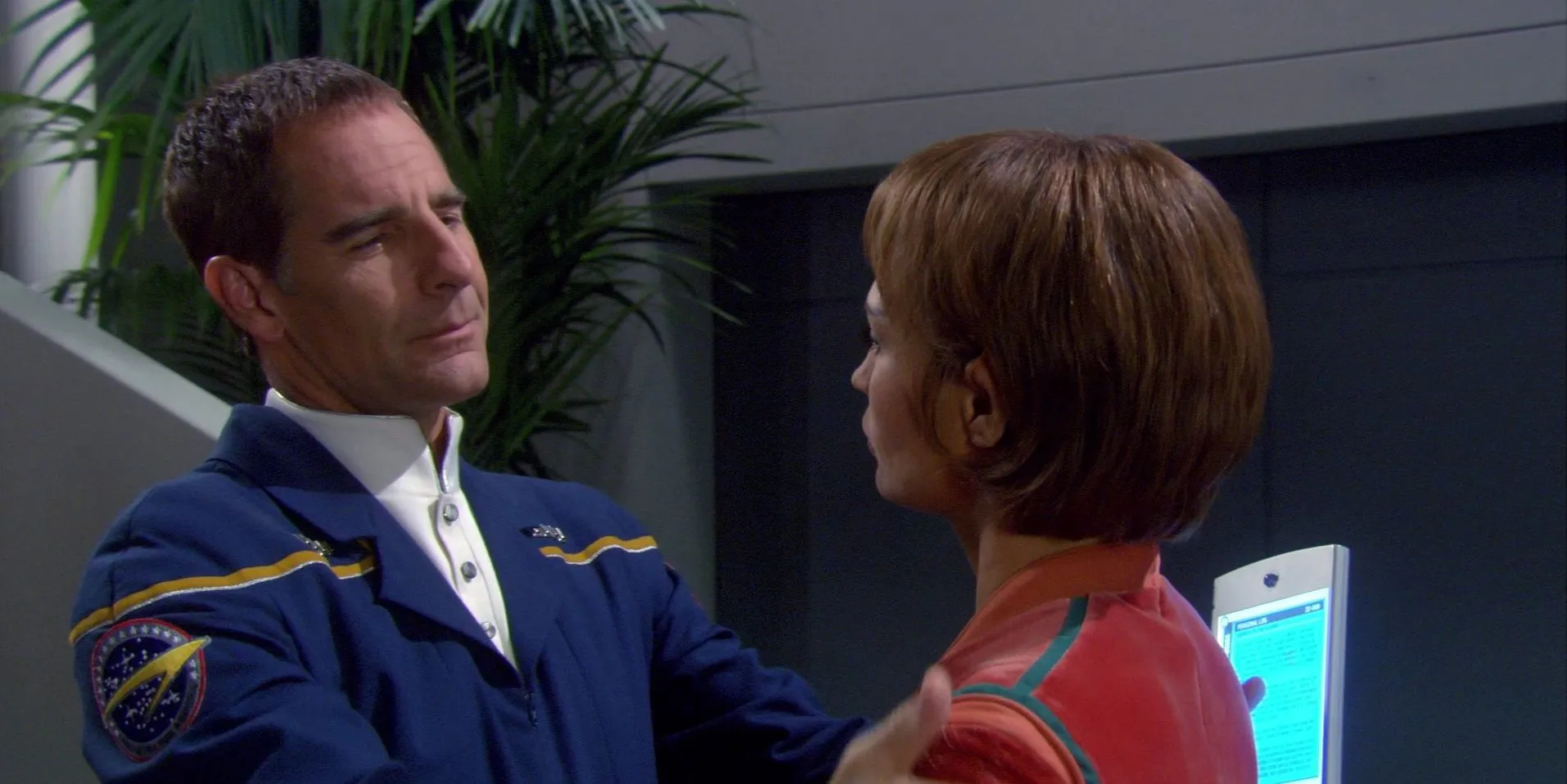
Contrastingly, “These Are The Voyages…”was intentionally crafted as a finale for Star Trek: Enterprise. After its four-season run ended in 2005, the episode marked an era overseen by Rick Berman, who steered the franchise for 18 years, beginning with Star Trek: The Next Generation, followed by Deep Space Nine and Voyager. Therefore, this episode aimed to offer not only closure to a series but also a farewell to nearly two decades of beloved Star Trek storytelling.
The inclusion of characters from The Next Generation might initially signal an appropriate farewell. “These Are The Voyages…”narrates Captain Jonathan Archer’s (Scott Bakula) contributions to establishing the United Federation of Planets. In theory, this thematic conclusion aligns perfectly with Star Trek’s overarching narrative, which is premised on the Federation’s presence.
However, in practice, the episode falls short. Centering around Commander William T. Riker (Jonathan Frakes), it feels less like the finale of Enterprise and more akin to a lost TNG episode. The entire plot unfolds in a holodeck setting on the Enterprise-D, precluding any authentic interaction among the characters from Enterprise. Furthermore, the treaty regarding the Federation charter, occurring after the second to last episode, creates a temporal disconnect that undermines the intended storyline. Ultimately, despite grand intentions, the execution of “These Are The Voyages…”fails to resonate.
Acknowledging “These Are The Voyages…”as Star Trek’s Worst Finale
“Turnabout Intruder”as Closure, but Not an Effective Finale
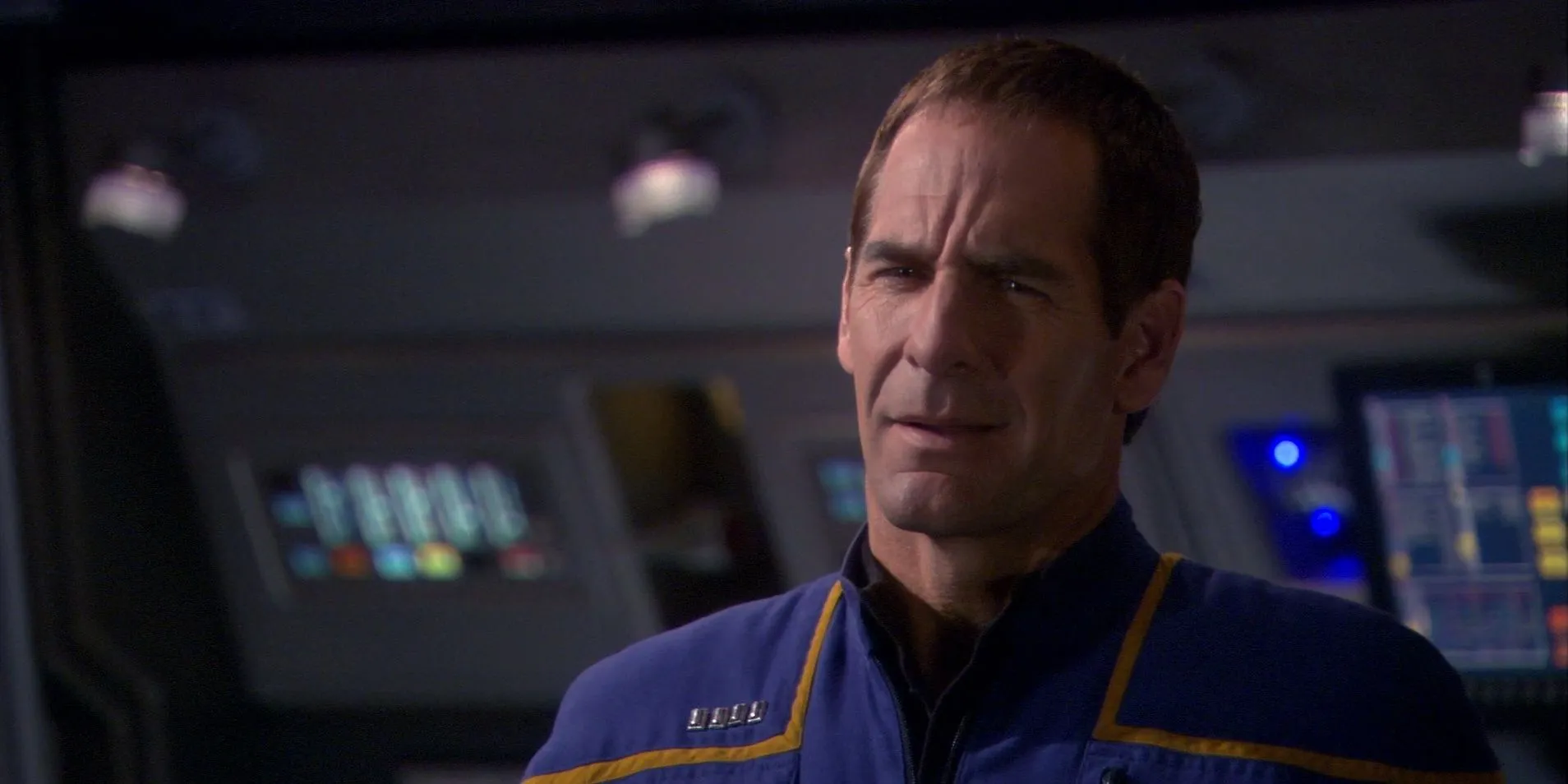
In conclusion, “These Are the Voyages…”can be deemed the least favorable finale in the entire Star Trek chronology. Given that “Turnabout Intruder”was merely conceived as another episode rather than a definitive series conclusion, it arguably lacks the gravitas of a traditional finale. It is more accurate to regard Star Trek: The Original Series as having an ending without a true finale to cap the odyssey.
On the flip side, Enterprise presented a structured finale, but it fell flat when measured against its narrative essence. The most impactful Star Trek finales provide a conclusive wrap-up while indicating that characters will continue their explorative journeys. For example, in Lower Decks, Jack Ransom (Jerry O’Connell) takes command of the Cerritos, launching into new adventures; similarly, at the conclusion of DS9, Worf (Michael Dorn) transitions to the role of ambassador to the Klingon Empire while Colonel Kira Nerys (Nana Visitor) stands as the new commander of Deep Space Nine. For each of these characters, the adventure persists.
“These Are The Voyages…”serves as a reminder that, for Star Trek, a disappointing finale may be more significant than having no conclusion at all.
